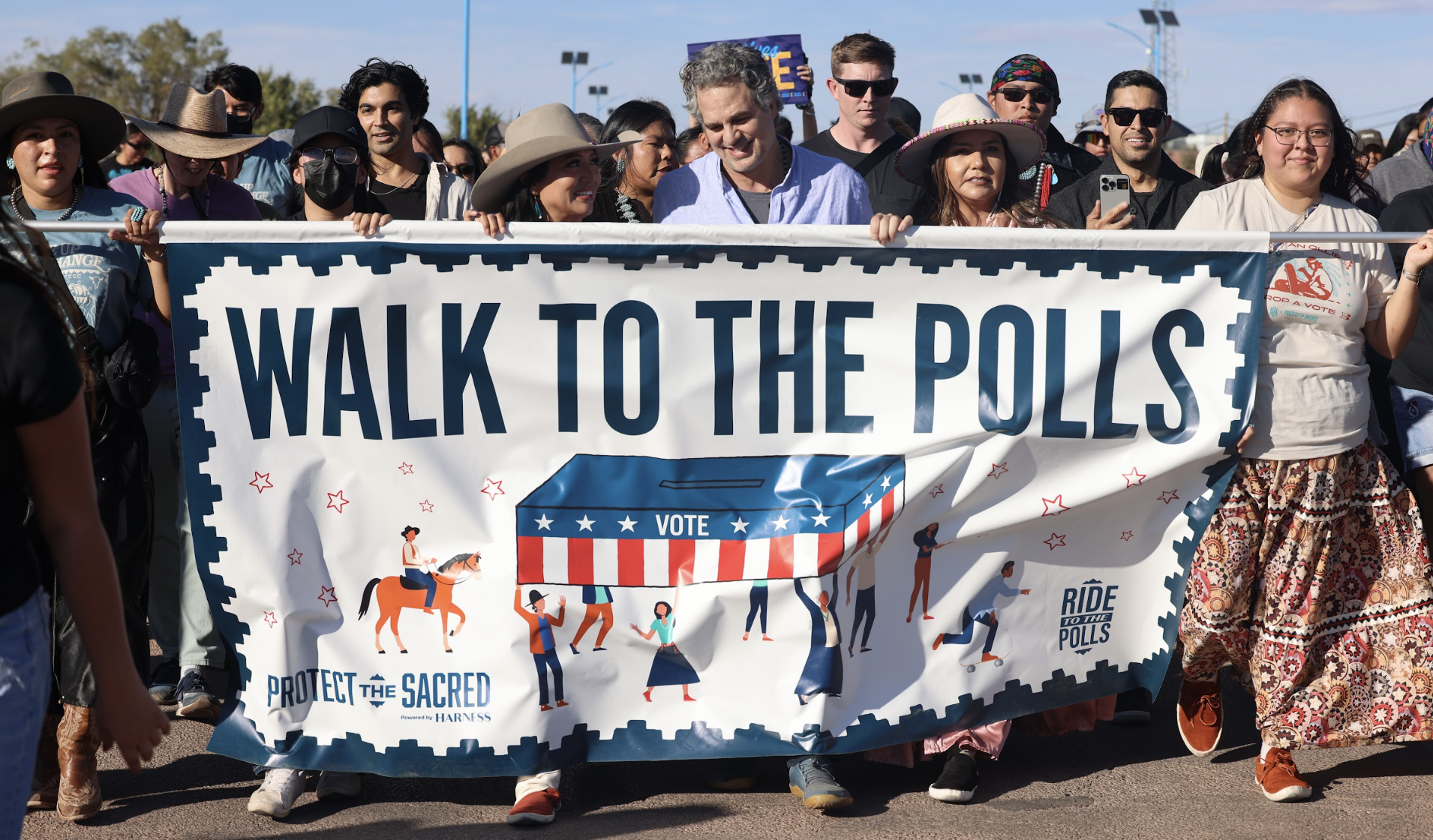
- Details
- By Neely Bardwell
Native Vote 2024. With less than two weeks left until November 5, election day is quickly approaching, now is the time to make a plan to vote if you haven't already.
Making a plan to vote can increase your likelihood of following through on your intentions.
Whether you’re voting by mail, in person on November 5, or in early voting, your voice can help shape the future of our communities.
This election season, Native people can make the difference. In 2020, the Native vote helped secure the win for President Joe Biden, as Native Americans turned out in record numbers to the polls.
“Yes, your vote matters. President Kennedy won his election in 1961 by just over 100,000 votes, or an average of one vote per precinct. The 2016 presidential election in Michigan was decided by just over 10,000 votes. The number of Native Americans in Michigan in 2020 is about 110,000. We can be the margin of victory,” Dr. Aaron Payment, Sault Tribe of Chippewa Indians council member, explained.
In order to ensure all Native voices are heard this election, it's imperative that you make a plan early. Here are some tips that can help you make your plan.
- If you’re voting by mail, send in your ballot immediately! Check your state’s deadline for when ballots must be received and ensure yours gets in on time. Remember, some states require ballots to be postmarked by Election Day.
- If you plan to vote in person, use resources like Native Votes or Vote411.org to confirm your polling place, check ID requirements, and find out the hours your location is open.
- If you haven't registered yet, check what the registration deadlines are for your state. If your state allows same-day registration, you can still register and vote in person on Election Day. Visit Vote.org to confirm your state’s policies and registration deadlines.
- Make sure you’re informed before you vote. Visit BallotReady.org to review the candidates and issues on your ballot so you can make decisions that reflect your values.
Of course, elections are not won alone. Your vote can inspire others. Reach out to your friends, family, and community members today and remind them to get out and vote.
Or better yet, offer to help make a voting plan for them.
More Stories Like This
Native News Weekly (August 25, 2024): D.C. BriefsScope Narrowed, Report Withheld: Questions Mount Over Michigan Boarding School Study
Zuni Youth Enrichment Project Announces Family Engagement Night and Spring Break Youth Programming
Next on Native Bidaské: Leonard Peltier Reflects on His First Year After Prison
Deb Haaland Rolls Out Affordability Agenda in Albuquerque
Help us defend tribal sovereignty.
At Native News Online, our mission is rooted in telling the stories that strengthen sovereignty and uplift Indigenous voices — not just at year’s end, but every single day.
Because of your generosity last year, we were able to keep our reporters on the ground in tribal communities, at national gatherings and in the halls of Congress — covering the issues that matter most to Indian Country: sovereignty, culture, education, health and economic opportunity.
That support sustained us through a tough year in 2025. Now, as we look to the year ahead, we need your help right now to ensure warrior journalism remains strong — reporting that defends tribal sovereignty, amplifies Native truth, and holds power accountable.
 The stakes couldn't be higher. Your support keeps Native voices heard, Native stories told and Native sovereignty defended.
The stakes couldn't be higher. Your support keeps Native voices heard, Native stories told and Native sovereignty defended.
Stand with Warrior Journalism today.
Levi Rickert (Potawatomi), Editor & Publisher

